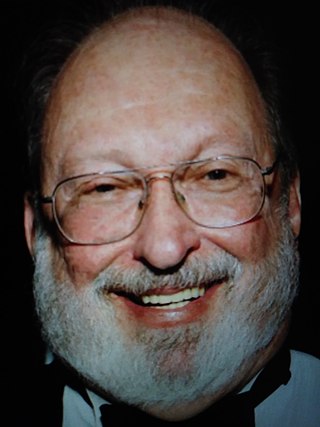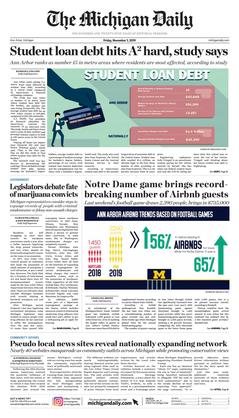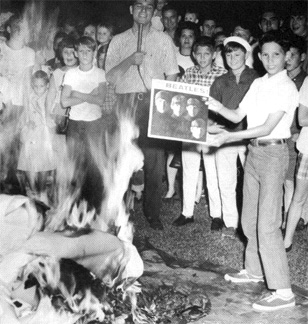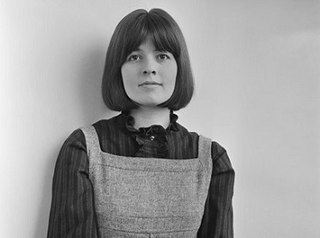Related Research Articles

James Monroe was an American statesman, lawyer, diplomat, and Founding Father who served as the fifth president of the United States from 1817 to 1825, a member of the Democratic-Republican Party. He was the last Founding Father to serve as president as well as the last president of the Virginia dynasty. His presidency coincided with the Era of Good Feelings, concluding the First Party System era of American politics. He issued the Monroe Doctrine, a policy of limiting European colonialism in the Americas. Monroe previously served as governor of Virginia, a member of the United States Senate, U.S. ambassador to France and Britain, the seventh secretary of state, and the eighth secretary of war.
Anne Longworth Garrels was an American broadcast journalist who worked as a foreign correspondent for National Public Radio, as well as for ABC and NBC, and other media.

Bleeding Kansas, Bloody Kansas, or the Border War was a series of violent civil confrontations in Kansas Territory, and to a lesser extent in western Missouri, between 1854 and 1859. It emerged from a political and ideological debate over the legality of slavery in the proposed state of Kansas.

James Everett Bohannon was an American broadcaster who worked in television and radio and hosted the nationally syndicated late night radio talk show The Jim Bohannon Show originally broadcast on the Mutual Broadcasting System and later the Westwood One Network from 1985 to 2022. For 31 years, he also hosted America in The Morning, a nationally syndicated radio news show, stepping down in December 2015.

Craig Unger is an American journalist and writer. He has served as deputy editor of The New York Observer and was editor-in-chief of Boston Magazine. He has written about George H. W. Bush and George W. Bush for The New Yorker, Esquire Magazine, and Vanity Fair. He has written about the Romney family and Hart InterCivic.

Roberto Mangabeira Unger is a Brazilian philosopher, jurist and politician. His work is in the tradition of classical social theory and pragmatism, and is developed across many fields including legal theory, philosophy and religion, social and political theory, progressive alternatives, and economics. In natural philosophy he is known for The Singular Universe and the Reality of Time. In social theory he is known for Politics: A Work in Constructive Social Theory. In legal theory he was associated with the Critical Legal Studies movement, which helped disrupt the methodological consensus in American law schools. His political activity helped the transition to democracy in Brazil in the aftermath of the military regime, and culminated with his appointment as Brazil's Minister of Strategic Affairs in 2007 and again in 2015. His work is seen to offer a vision of humanity and a program to empower individuals and change institutions.

The Michigan Daily, also known as 'The Daily,' is the independent student newspaper of the University of Michigan published in Ann Arbor, Michigan. Established on September 29, 1890, the newspaper is financially and editorially independent from the university. The Daily is often considered one of the most influential student publications, and is one of the largest student publications in the United States with over 500 student staff members.

Dominic Christopher Sandbrook, is a British historian, author, columnist and television presenter. He co-hosts The Rest is History podcast with author Tom Holland.

Benjamin Fong-Torres is an American rock journalist best known for his association with Rolling Stone magazine and the San Francisco Chronicle.

"More popular than Jesus" is part of a remark made by John Lennon of the Beatles in a March 1966 interview, in which he argued that the public were more infatuated with the band than with Jesus, and that Christian faith was declining to the extent that it might be outlasted by rock music. His opinions drew no controversy when originally published in the London newspaper The Evening Standard, but drew angry reactions from Christian communities when republished in the United States that July.
Steve Turner is an English music journalist, biographer, and poet, who grew up in Daventry, Northamptonshire, England.

Maureen Diana Cleave was a British journalist. She worked for the London Evening Standard from 1958 conducting interviews with many prominent musicians of the era, including Bob Dylan and John Lennon. Over 50 years, she continued to interview people in all walks of life, in the Standard, the Telegraph Magazine, Observer Magazine, Saga magazine, Intelligent Life magazine, and elsewhere.

Lawrence Edmund Spivak was an American publisher and journalist who was best known as the co-founder, producer and host of the prestigious public affairs program Meet the Press. He and journalist Martha Rountree founded the program as promotion for Spivak's magazine, The American Mercury, and it became the longest-running continuous network series in television history. During his 28 years as panelist and moderator of Meet the Press, Spivak was known for his pointed questioning of policy makers.
Frank Luther Mott was an American academic, historian and journalist, who won the 1939 Pulitzer Prize for History for Volumes II and III of his series, A History of American Magazines.

The Beatles staged their third and final concert tour of North America in August 1966. It consisted of 18 performances, with 16 shows in United States venues and two in Canada. The tour was plagued with backlash regarding the controversy of John Lennon's remark about the Beatles being "more popular than Jesus", death threats, and the band's own dissatisfaction with the noise levels and their ability to perform live. Their speaking out against the Vietnam War added further controversy to the visit.
The religious views of the English rock band the Beatles evolved over time and differed among members John Lennon, Paul McCartney, George Harrison, and Ringo Starr.
Mat Snow is an English music journalist, magazine editor, and author. From 1995 to 1999, he was the editor of Mojo magazine; he subsequently served in the same role on the football magazine FourFourTwo.

TeenSet was an American music and fan magazine published by Capitol Records. Beginning in 1964 as a free album insert for fans of the Beach Boys, the magazine was sold separately in 1965 and it grew in popularity. It was introduced as a vehicle to promote the Beach Boys and other Capitol artists, but in the hands of editor Judith Sims, the magazine broke new ground, rising above its fan club origin. Quickly establishing itself as the gateway to the inner circle of the Beatles at the height of Beatlemania, TeenSet parlayed this trust to introduce their readers to new artists, in the process greatly increasing the visibility of Buffalo Springfield, the Doors, Janis Joplin and the Mothers of Invention. The magazine benefited from articles by music critic Sue Cameron, London correspondent Carol Gold, psychedelic maverick Robert Shea, and photographs from Jim Marshall and Michael Ochs. It began as an early teen girls' magazine but by 1968 was shifting to focus on late teen girls and young women in their early twenties.
Datebook was a teen-oriented magazine, edited and published in the US by Art Unger and Danny Fields.
References
- ↑ Unger, Arthur (1943–2004). "Arthur Unger Papers". shsmo.org. State Historical Society of Missouri. Retrieved March 11, 2022.
- ↑ Ward, Brian (2012). ""The 'C' is for Christ": Arthur Unger, Datebook Magazine and the Beatles". Popular Music and Society. 35 (4): 541–560. doi:10.1080/03007766.2011.608978. S2CID 191591852 . Retrieved March 10, 2022.
- ↑ "Paid Notice: Deaths UNGER, ARTHUR". The New York Times. July 13, 2004. Retrieved March 11, 2022.